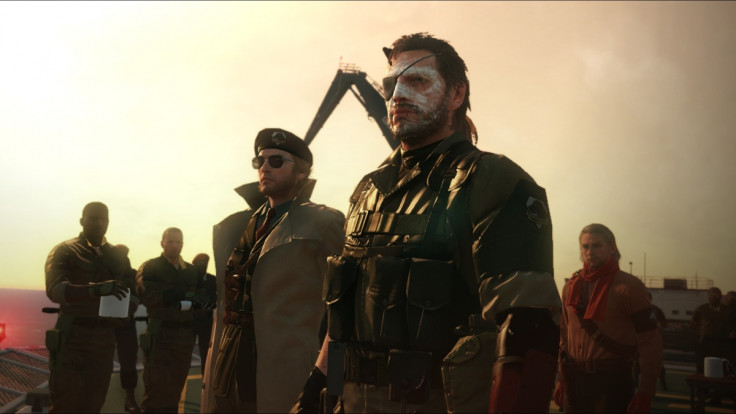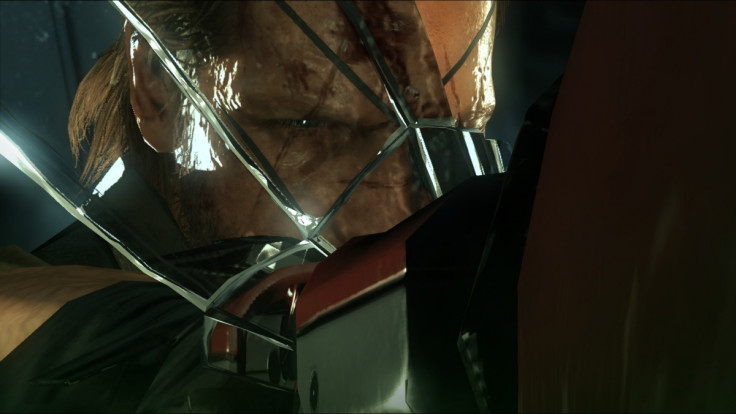Metal Gear Solid 5 The Phantom Pain: How Hideo Kojima questions his own legend in MGS sequel

I'm the last person who wants to give Hideo Kojima credit. Even when he's good – and he occasionally is – I struggle to enjoy his work, with it being so sexist. But my reluctance to praise Kojima, and join the chorus of critics and fans who herald him a genius, makes me, along with the other people who dislike his games, perfectly suited for Metal Gear Solid 5.
This is a game about weariness, unfulfilment and alienation. Whether Kojima has jumped from Konami or been pushed, it's fitting that the The Phantom Pain is his last game at the company, with it feeling so much like a departing love letter to his own celebrity.
He's clearly a very bored game-maker. Mission after mission, you embark to the same war torn landscapes, the same metal-grey enemy bases, to face the same challenges and the same fights. MGS 5's stealth and combat systems are so heavily rigged in your favour that you rarely go wrong.
Like your character, a veteran soldier who can conquer even the most complicated assignments with ease, Kojima by now must feel unchallenged by video game development. Another mission for Snake, another level to design for Kojima Productions. Another enemy to kill, another routine of AIs and outcomes to program.
From Kenneth Baker in MGS 1 telling you to check the back of the game case, Kojima has always weaved postmodernism and meta-commentary into his games, often with eye-rolling results. Despite MGS 5 being more knowing than any of Kojima's previous work, it feels subtler, and borders on self-effacing.
I wouldn't say Kojima has suddenly become self-conscious or self-critical – you look at Quiet, and it's clear he's still partly high on his status, and deaf to all standards of representation and writing – but the structure and mechanics in MGS 5 speak of a director disenfranchised with his ability and his success. Just as war is a routine job for Snake, Kojima seems here to have approached this series with a workaday mentality.
He's certainly dubious of his own reputation. When you return to Mother Base and the soldiers of Diamond Dogs salute you, it feels inherently empty – what you've just "achieved" was usually simple and standard, and their admiration of you, although you can't tell them, is misguided. It feels cultivated and practised.
Ocelot will tell you to return to base every now and then so as to keep up the men's spirits. Spend long enough there and a little pop-up will appear, telling you "staff morale increased". You're a "hero" but also acutely aware your heroic acts are hardly a strain on you personally, that you're admired by others in a way you – because you know what's really going on – can never admire yourself. If Snake's fame as a soldier is a product of hearsay, propaganda and troops looking for a leader, Kojima's status in the game industry is the result of PR, over-eager players and a press hungry for auteurs.

And I think it's precisely that audience for which Kojima has lost respect. If you grab one of the saluting Diamond Dog soldiers, wrestle him to the ground and hold a knife to his neck, he'll get up and thank you for the "practice". You can actively attack these troops and they'll still love you.
After years of making Metal Gear Solid, and repeatedly stating he is done creating video games, it's as if Kojima regards his audience almost with scorn. You can do anything to them. You can give them anything. As long as you live up to their idea of who you are – act like a soldier, act like a "genius" – they'll accept it and thank you. I feel like the game industry has always been complacent at challenging Kojima's games and writing. Playing MGS 5, it seems he's started to think the same.
Major spoilers for the end of MGS 5 follow...
Ultimately, it feels like he wants to distance himself from his reputation, from the image either he, his studio or the industry has developed for him over the years. I think he's keen to tell us that he, and perhaps his work, are not what we think.
It's revealed in MGS 5 that your character is not actually the legendary soldier Big Boss – while in a coma, you were given plastic surgery to look like Big Boss and hypnotically implanted with his memories, in order to unknowingly masquerade as him while he went into hiding. Your reputation, your stature and your skills are not your own – they have been given to you by outsiders. As much as you grow into them, or try to grow into them, you are never actually Big Boss.
Perhaps Kojima feels that, similarly, the ideas about him that exist among the gaming industry are inflated and false, that people recognise him only for his achievements, prizes and press image, and that largely most of those things don't belong to him, at least not exclusively. Your character in MGS 5 is a ghost – a phantom – of someone else's attainments. And the closer you get to that person, the more of his kind of work that you do, the more you realise those attainments are unremarkable.
What Kojima seems to have realised is that his audience will only enjoy him so long as he is unchallenging, and producing work they are already prepared to enjoy – like the central character in MGS 5, whose metal horn identifies him as a cuckold, Kojima knows the world is not in love with him but an idea of what he is.
For all the latest video game news follow us on Twitter @IBTGamesUK.
© Copyright IBTimes 2025. All rights reserved.




















